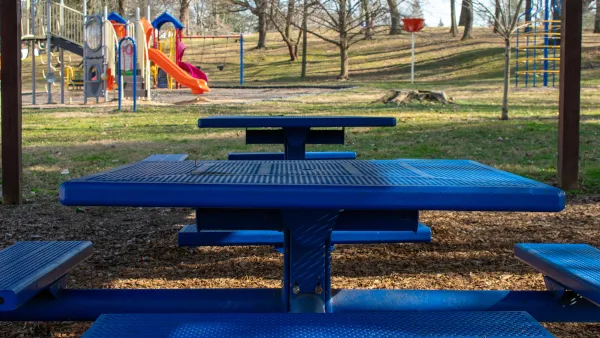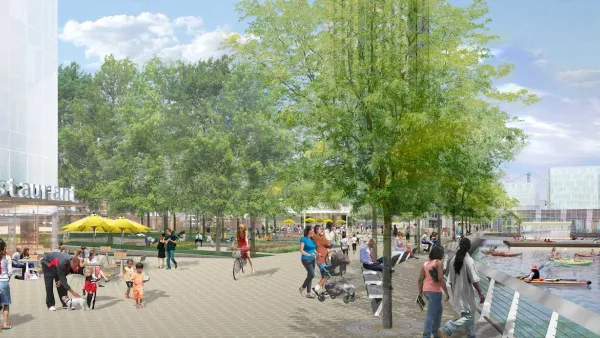Philadelphia spends $64 on parks and recreation facilities per resident, one of the lowest totals in the nation. Ryan Briggs uses the city as a lens to examine the growing impact of budget cuts to park systems on their surrounding communities.
After hundreds of residents campaigned for a year, the Philadelphia City Council approved a $2.67 million increase in funding for its Department of Parks and Recreation last November. "The funding increase is still far less than the additional $17 million a year that Mayor Michael Nutter said, while campaigning for his current office in 2007, was required for basic maintenance of the city’s park system alone," says Briggs; but as Lauren Bornfriend, director of the Philadelphia Parks Alliance said, it's "a start."
The problem, continues Briggs, is that "[e]veryone loves the idea of parks and rec centers, but no one likes actually paying for them. Parks and Recreation services have long been whipping boys of city councils and municipal budget-makers across the country, with funding cuts being less politically charged than those to emergency services and less immediately noticeable than, say, libraries. With long-standing national and global economic uncertainty eating into municipal revenues, cuts to park budgets have become more frequent and pronounced." The lack of funding results in decay that disproportionately affects lower-income neighborhoods and decreases the health of surrounding communities.
The Rec Department proposes that "maintenance costs to existing parkland and rec centers can be partially deferred by institutionalizing the process of organizing so-called 'Friends' groups for recreation facilities across the city," says Briggs, but "such organizations are far more likely to appear in well-to-do areas, where there are more private dollars floating around to make up the difference." Deputy Mayor of Environmental and Community Resources Michael DiBerardinis "believes the Rec Department can help set up additional groups in neighborhoods that are rich in volunteers but short on cash."
Whatever the solution, or combination of them, it's clear that in lean budgetary times, "citizen activism is crucial to securing equitable funding for parks."
FULL STORY: Everyone Loves Parks, But No One Wants to Pay For Them

Analysis: Cybertruck Fatality Rate Far Exceeds That of Ford Pinto
The Tesla Cybertruck was recalled seven times last year.

National Parks Layoffs Will Cause Communities to Lose Billions
Thousands of essential park workers were laid off this week, just before the busy spring break season.

Retro-silient?: America’s First “Eco-burb,” The Woodlands Turns 50
A master-planned community north of Houston offers lessons on green infrastructure and resilient design, but falls short of its founder’s lofty affordability and walkability goals.

Test News Post 1
This is a summary

Analysis: Cybertruck Fatality Rate Far Exceeds That of Ford Pinto
The Tesla Cybertruck was recalled seven times last year.

Test News Headline 46
Test for the image on the front page.
Urban Design for Planners 1: Software Tools
This six-course series explores essential urban design concepts using open source software and equips planners with the tools they need to participate fully in the urban design process.
Planning for Universal Design
Learn the tools for implementing Universal Design in planning regulations.
EMC Planning Group, Inc.
Planetizen
Planetizen
Mpact (formerly Rail~Volution)
Great Falls Development Authority, Inc.
HUDs Office of Policy Development and Research
NYU Wagner Graduate School of Public Service




























